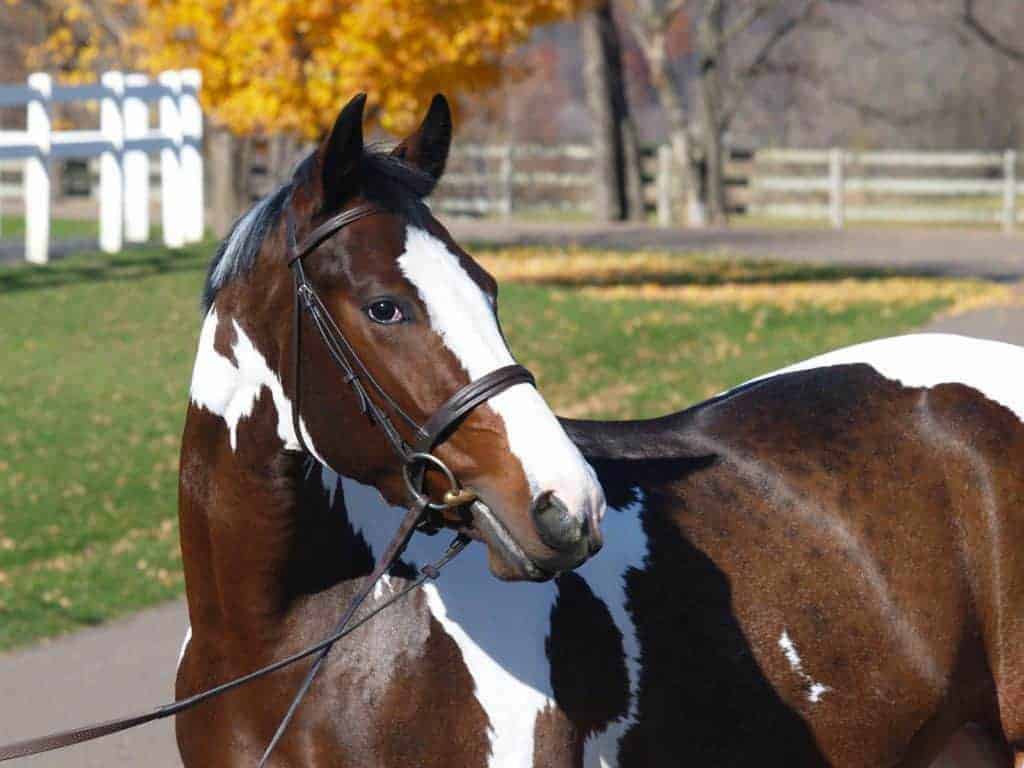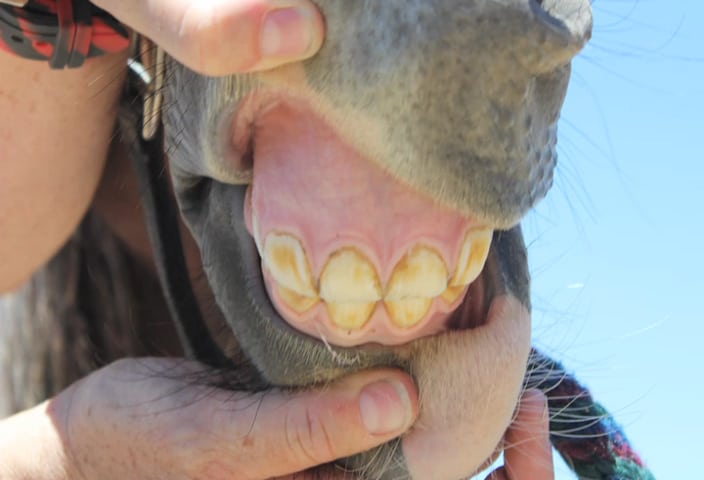
10 Tips for Winterizing Your Horse
Whether your region’s winter weather consists of cooler temps and occasional rains or you’re in for months of frigid winds and endless snowfall, you can take steps to make the season more manageable.

Whether your region’s winter weather consists of cooler temps and occasional rains or you’re in for months of frigid winds and endless snowfall, you can take steps to make the season more manageable.
The three-part series will cover routine veterinary, farriery, and dental care.

Did you know donkeys are more prone to laminitis in their hind feet, whereas horses tend to founder on their front? Learn about these donkey-health facts and more in our special report.
The case has been closed unless new information emerges, according to one Texas law enforcement officer.
Michigan State University’s (MSU) College of Veterinary Medicine is offering expanded equine dental services.
A Texas veterinarian is hoping to determine who engraved an obscenity onto a horse’s front teeth and why.
A judge ruled that a non-veterinarian equine dentist could not perform tooth-floating services for pay.

There are more than 100 possible causes for dysphagia–the inability to swallow–in horses.

Increased feed digestibility means greater conversion of feed to energy and–ideally–reduced feed bills.

Studies offer conflicting information in regard to whether bit seating is beneficial to bitted horses.

Caring for deciduous teeth in young horses requires additional considerations from a veterinary standpoint.

Advancements in equine restorative dentistry are giving owners options when faced with some dental disorders.

Horses’ teeth are very different from humans, and they need special dental care at least annually. Learn about routine dental exams, common dental problems, and routine equine dentistry procedures with Dr. Christy Corp-Minamiji.
Texas lawmakers have passed legislation that defines the role of nonveterinarian equine dentists in that state
Texas lawmakers are pondering legislation that would define the role of nonveterinarian equine dentists in that state. Current state law does not prohibit nonveterinarian dentists from floating horses’ teeth. But defining just how much work
An Arkansas bill that would allow equine dentists who are not veterinarians to float horses’ teeth without facing prosecution from that state’s Veterinary Medical Examining Board advanced on March 18 when it was passed by the Arkansas House of
Stay on top of the most recent Horse Health news with
"*" indicates required fields